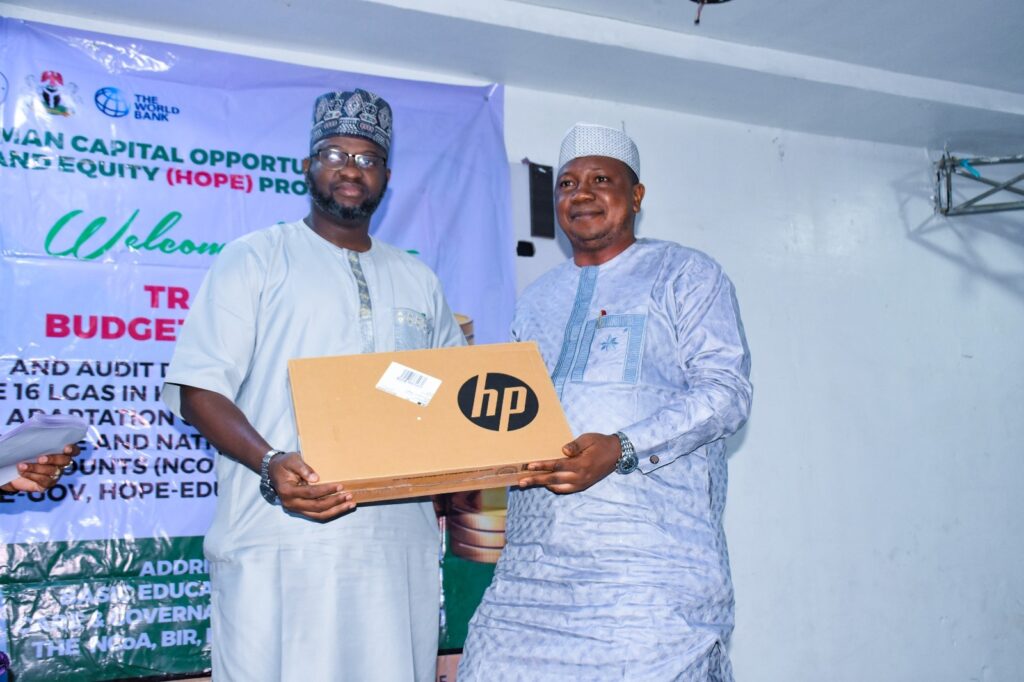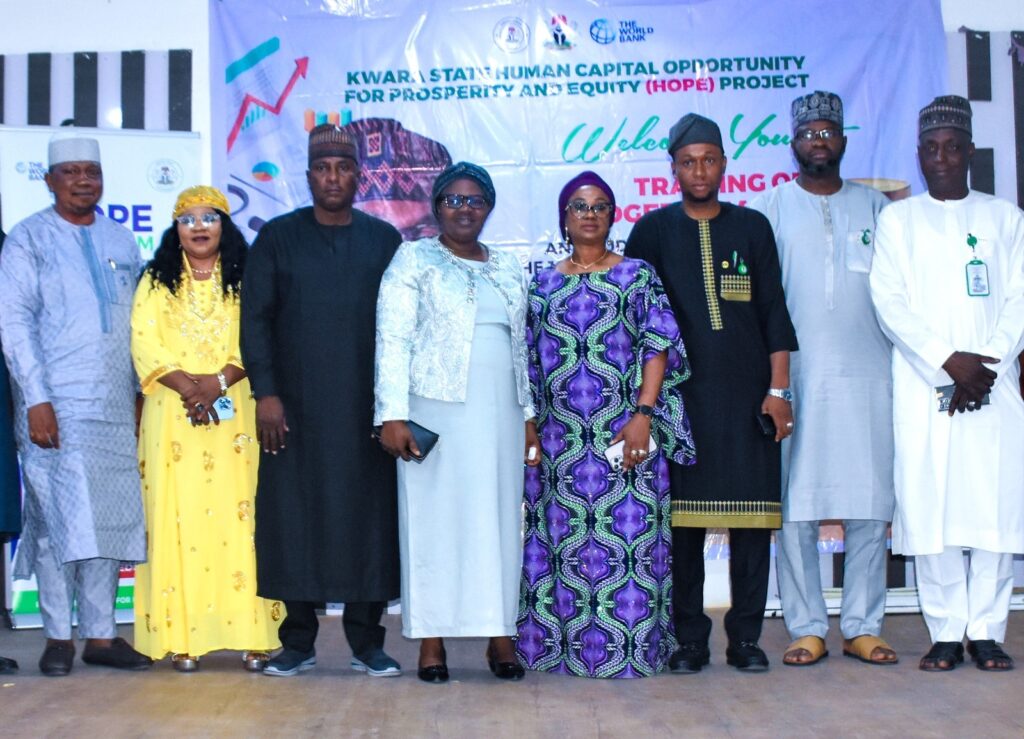By Zarumi Mashood
The Kwara State Government has commenced a four-day training for budget/finance and audit desk officers of the 16 Local Governments of the state on the adoption of harmonized guidelines and national chart of accounts under the state Human Capital Opportunity for Prosperity and Equity (HOPE) project.
HOPE Project is a World Bank-supported Performance for Results (PforR) programme that covers key sectors, such as Governance (HOPE-GOV), Basic Education (HOPE-EDU), and Primary Healthcare (HOPE-PHC).
The training, which was attended by cabinet members and local council chairmen, will take place between Tuesday, 21st and Friday 24th October, 2025, with the theme: “Addressing Constraints in Basic Education, Primary Health Care and Governance, and Understanding the National Chart of Accounts (NCoA), International Public Sector Accounting Standards (IPSAS), the Budget Implementation Reporting (BIR) framework and Public Audit”.
State Commissioner for Finance and Chairman for Kwara HOPE Project, Dr. Hauwa Nuru, who declared the training open, said the event further demonstrates the commitment of Governor AbdulRahman AbdulRazaq to strengthen governance systems, promote accountability, and improve service delivery across all tiers of government in the state.

She said the HOPE Project was designed to address long-standing institutional and systemic constraints that limit effective service delivery at the local government level.
“This event represents yet another demonstration of the commitment of Governor AbdulRahman AbdulRazaq to strengthening governance systems, promoting accountability, and improving service delivery
across all tiers of government in the state,” she said.
“This training is not just about compliance. It is about building institutional capacity and sustaining progress. It is about empowering our officers with the knowledge and tools to drive efficiency, improve reporting accuracy, and support better decision-making in our local government system.
“If these frameworks are properly adopted it will ensure that budgets are well-prepared, expenditures properly tracked, and reports generated in line with national and international best practices.
“This reform is not new to Kwara state, because this administration under our visionary Governor has implemented several far-reaching financial and governance reforms that have positioned us among the leading states in Nigeria in World Bank-supported performance-for results programmes, such as SABER, NG-CARES, and HOPE.”
Kwara has also benefited significantly from the signing and implementation of various Executive Orders that institutionalize fiscal discipline, promote ease of doing business, and entrench transparency at all levels of government, she added.
While urging the participants to take the training seriously and engage fully with the facilitators, Dr Nuru expressed hope that at the end of the session the three tiers of government will synergize to achieve the HOPE Project’s development goals and sustain the confidence of the development partners.
Lead Consultant for World Bank projects in the state, Dr Paul Adepelumi, said the programme was meant to support the third tier of government to meet requirements set by the World Bank towards enhancing transparency, openness and accountability in governance.
“The World Bank has set some eligibility criteria for the states to participate in the project and there are some other components which are called the disbursement link indicators,” he said, adding these activities are benched against results.
“The local governments are also expected to publish their budget on the local government website based on IPSAS and national chart of accounts by the 31st of January. So, the backstamp published would determine if the state actually met the criteria or not.”
Representatives of the chairmen who spoke with newsmen on the sidelines of the event, including Hon. Suleiman Olatunji Omintuntun (Offa), Hon. Shehu AbdulRahman Ladan (Ilorin West), and Hon. Abdullahi Bello (Edu), commended the state government for creating a platform for them to key into the project.
They promised to make good use of the opportunity and maximize its objectives to enhance transparency and accountability in planning and implementation at their respective local governments.
The highlight of the occasion was the presentation of laptops to all participants (five per local government) to ease the practical sessions and for subsequent use in their respective offices.

